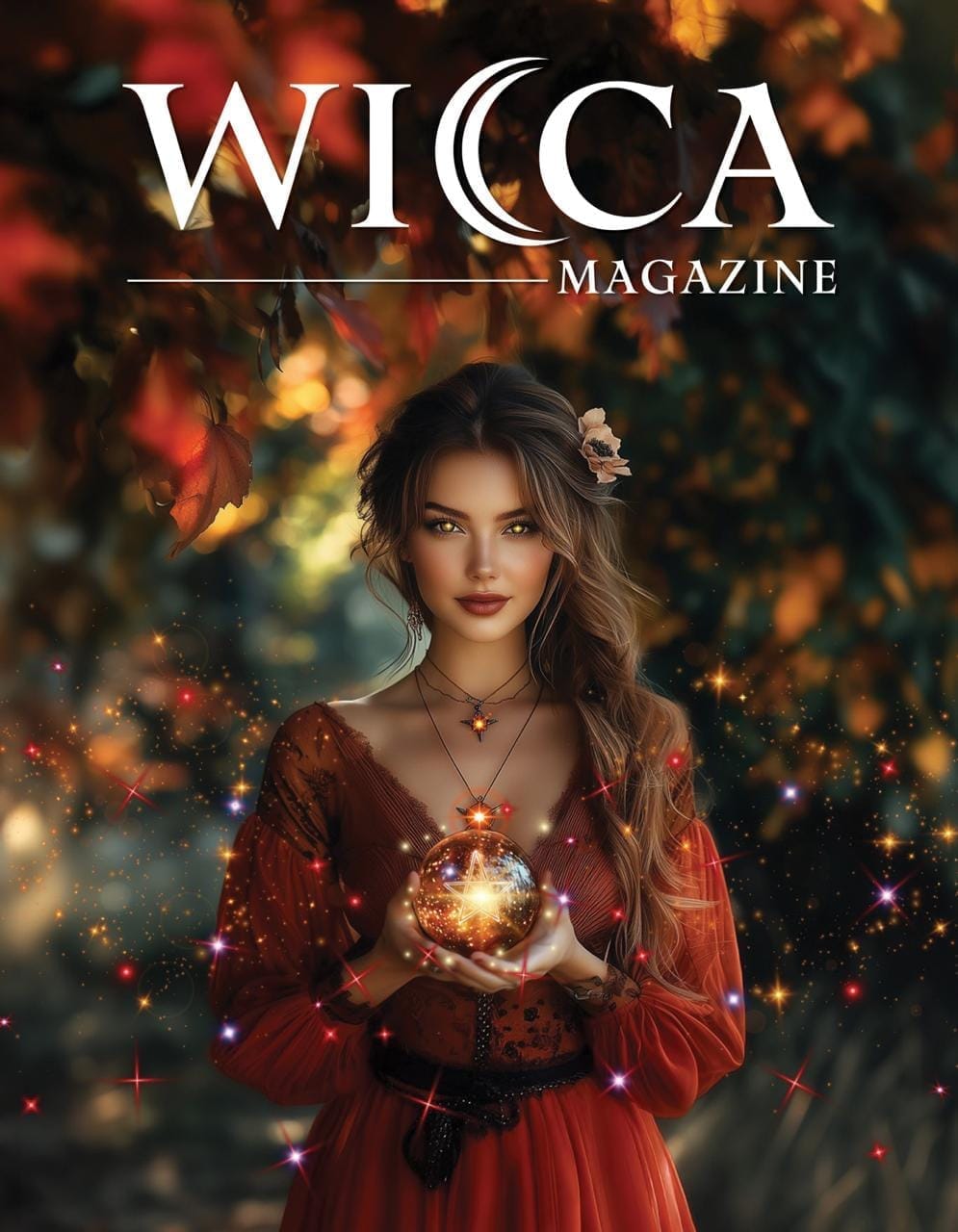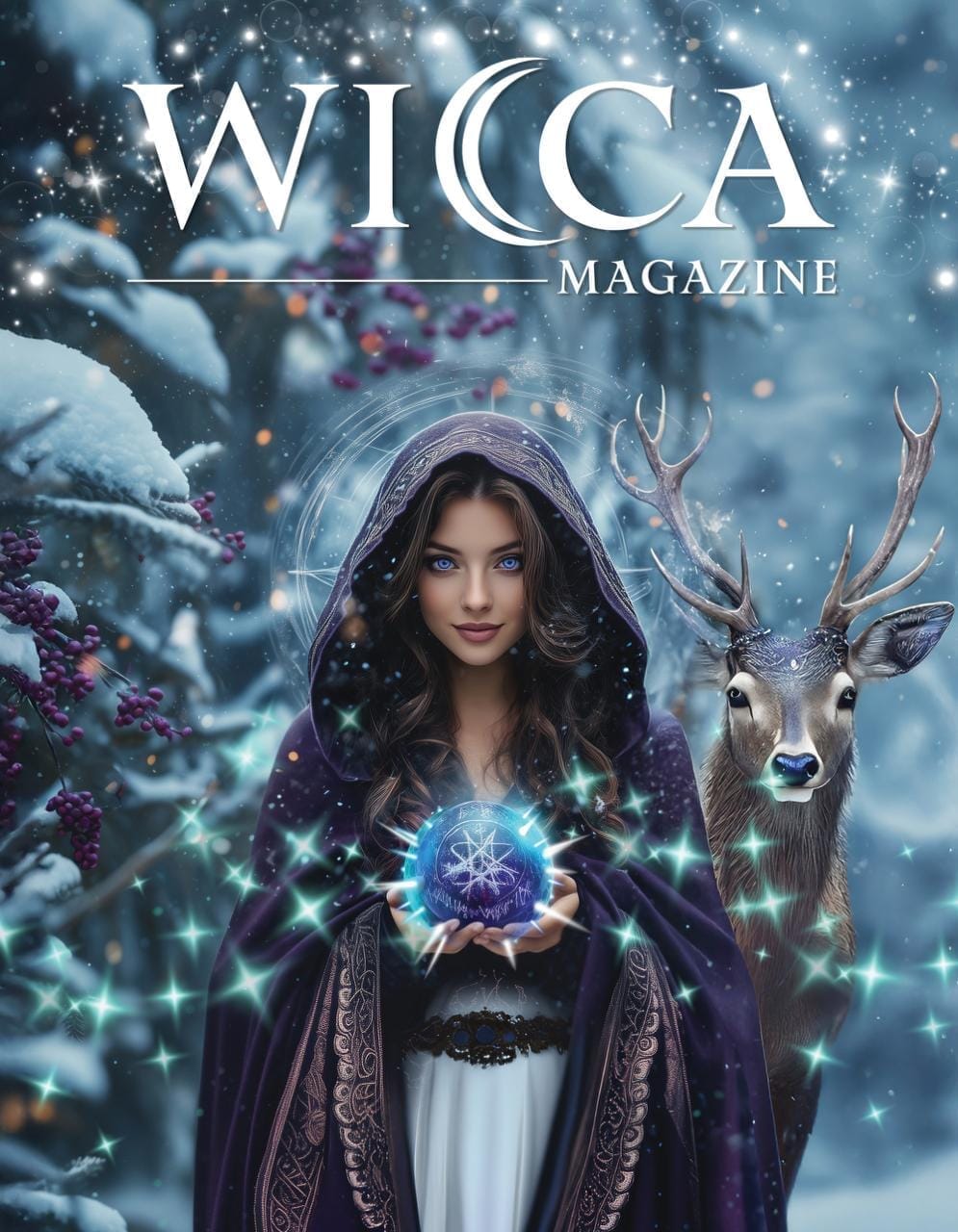


Unlock the Magick of Yule! - Your Wicca Magazine Issue Awaits
Step into the season of light with Wicca Magazine. Each digital issue is a sacred offering of spells, rituals, and Wiccan wisdom — honoring ancient paths and empowering your modern magick. Your craft, your journey, your magickal sanctuary.
Gerald Gardner is often called the Father of Wicca—a title that echoes with reverence, power, and quiet controversy. The path he shaped is both ancient and modern, born from shadows but now walking boldly into the light. Witchcraft itself is older than any book, older than any church, older than memory—and for centuries, it survived in whispers, symbols, and secrets.
Not long ago, Wicca as we know it didn't exist. No legal protections. No magazines. No rituals freely shared online or circles cast under open skies. Just silence… and those brave enough to break it.
And yet, here you are.
Reading this means you’ve already begun a deeper journey—one that winds through time, through truth, and through the flicker of candles lit in defiance and devotion. Because to understand where we’re going, we must honor where we’ve come from.
Born in the late 19th century in Lancashire, England, Gerald Gardner was a curious soul: an amateur anthropologist, archaeologist, and eventually, a seeker of magick. His early years were shaped by military service and his initiation into Freemasonry, though he quickly lost interest in rank and hierarchy.
While stationed in Sri Lanka and Singapore as a civil servant, Gardner became fascinated by local occult practices. These sparked his desire to explore the unseen. He began writing about magick from an anthropological view, but his path soon became personal. Upon returning to Britain, Gardner immersed himself in spiritualist churches and séances, convinced he had connected with departed relatives.
This led to his first novel, A Goddess Arrives — a fictional tale seeded with esoteric truths. But fiction was only the doorway. His true path was waiting.
In 1936, plagued by the damp English climate, Gardner sought better health through nudism—a practice a doctor had casually suggested. This lifestyle would later intersect profoundly with his ritual work. A trip to Cyprus revitalized his belief in reincarnation and deepened his spiritual quest.
It was near the New Forest that he encountered Rosicrucianism. Although he joined with initial enthusiasm, Gardner quickly realized that the order lacked true magickal depth. However, through its members, he was introduced to something far more significant.
One evening, Gardner joined a Rosicrucian group at a local woman’s home. A mysterious ritual took place—one Gardner would never fully reveal—where he heard the term "Wica" for the first time.
Later, he spoke of a forest rite in which witches raised a "cone of power" to protect England from Nazi invasion. Gardner was convinced he had found a surviving remnant of an ancient pre-Christian faith.
This aligned with the theories of Margaret Murray, whose works proposed a long-suppressed Pagan religion centered on a Horned God. Gardner saw his coven as a living extension of that tradition.
After WWII, Gardner purchased land near Bricket Wood and started a nudist colony. There, he reconstructed a 16th-century cottage dubbed "the witch's cottage" and began performing rituals inside—many derived from The Key of Solomon.
His involvement with Aleister Crowley’s Thelema, the Society for Psychical Research, and other occult organizations began to shape a new system of belief. Gardner blurred the lines between fact and fiction in his second novel, High Magic’s Aid, introducing rituals that would later become foundational in Wicca.
Gardner’s admiration for Crowley led to his initiation into Ordo Templi Orientis. Although he adapted many of Crowley’s rituals, internal disputes prevented him from becoming Crowley’s successor.
Denied leadership in Thelema, Gardner focused on his own emerging path—one steeped in ritual, nature, and the Divine Feminine. Skyclad practice, rooted in both his health beliefs and his spirituality, became a hallmark of his coven.
By 1951, Gardner had publicly declared himself a witch. Three years later, he opened the Museum of Magic and Witchcraft on the Isle of Man.
But it was his collaboration with Doreen Valiente that crystallized Wicca. She refined and rewrote many of his texts, removing overt Crowley influences and shaping the core liturgy of what would become known as Gardnerian Wicca.
Witchcraft Today (1954) and The Meaning of Witchcraft (1959) helped popularize Gardner’s beliefs. With Margaret Murray’s preface lending academic legitimacy, his work reached a broader audience.
Valiente’s poetic voice, combined with Gardner’s ritual structure, created a balanced system that resonated deeply with seekers.
Despite media ridicule in his lifetime, Gardner's vision eventually found fertile soil. Influential figures like Robert Graves and the countercultural movements of the 1960s embraced his message.
Critics today question the historical accuracy of his claims, and some view his rituals as reflections of personal quirks rather than ancient truths. Yet his impact remains undeniable.
In 1964, Gardner died of a heart attack aboard a ship returning from Lebanon. After his passing, his followers carried the torch.
Some remained loyal to Gardnerian Wicca. Others forged new paths, blending his teachings with their own. But all owed their beginnings to one eccentric man who dared to call himself a witch.
Gerald Gardner was a seeker. A synthesizer of ideas. A flawed but vital spark that helped reignite the flame of modern Paganism. Whether his roots were ancient or invented hardly matters now. What matters is the way he made people feel seen, empowered, and connected.
That is his real magick.